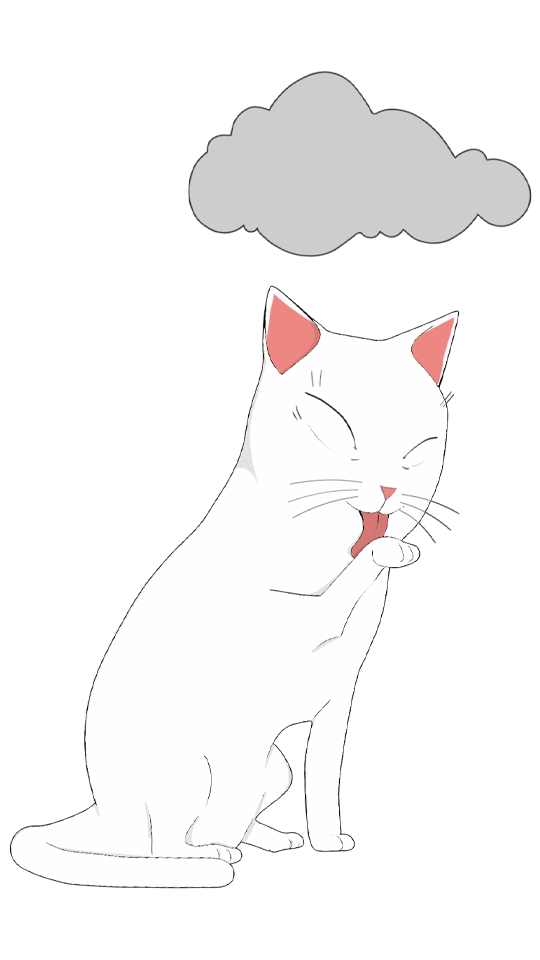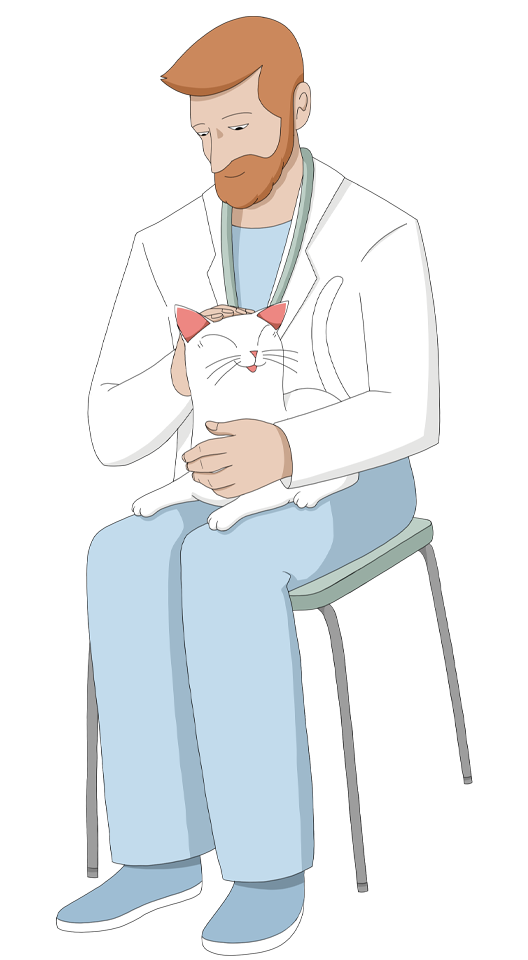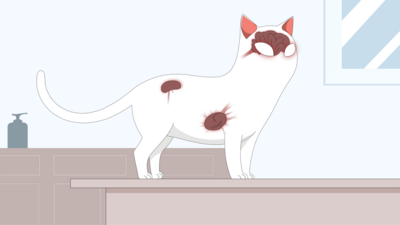
Consequences of hypertension in cats:
eye diseases and other affections
Although stress, fear and anxiety can all cause a temporary increase in blood pressure, it would be a mistake to think that these cause persistent rises in blood pressure and the disease we call hypertension. There are usually very specific underlying changes that lead to the development of hypertension, and in cats it often develops along with other very common conditions such as kidney and thyroid disease, seen particularly in older cats. Hypertension can also contribute to diseases of the eye heart and other organs and is often considered a ‘silent killer’ in cats.
Hypertension: the silent killer
The visible signs that your cat has hypertension are often subtle. Indeed especially in the early stages there may be no obvious indicators of high blood pressure, while important organs like the heart, the eyes and kidneys can sustain invisible but severe damage. This is one reason why it is vitally important to have your cat checked by your vet whenever you see subtle signs of illness such as a change in drinking, urination or weight.
In some cases, even in the early stages, more severe hypertension can cause more obvious signs of disease such as bleeding into the eyes, reduced vision or blindness, weakness, collapse and in extreme cases, seizures. In such cases, your vet will want to assess the eyes, heart and neurological functions along with measuring blood pressure. Further investigations may also be needed (including blood tests) to evaluate any damage caused by hypertension and/or investigate other diseases that may be present.

Consequences of hypertension
Hypertension refers to a sustained abnormally high blood pressure. Over time, hypertension can have severe health consequences as it is damaging to tissues and organs. What really makes hypertension a dangerous disease is the often-silent effects it has on vital organs such as the kidneys, heart, brain and eyes.
The eyes
Eye problems are one of the most common problems identified in cats with hypertension. This is partly because they are one of the organs that is readily damaged by high blood pressure (a 'target organ' for hypertension) and partly because they can be examined easily. Changes caused by hypertension include bleeding into the front or back chamber of the eye. You may be able to see bleeding or a blood clot in the front chamber of the eye but your vet would need to use a special instrument (an ophthalmoscope) to examine the back chamber. Some cats also develop partial of complete detachement of the retina which can cause sudden onset blindness. Any signs of bleeding in the eye, sight loss or abnormal behaviour should be urgently investigated by your vet.
The heart
If the heart is pumping against a higher pressure within the blood vessels, that means the heart has to work much harder. Because of this, the muscle of the heart becomes thickened (what is called hypertrophy of the heart) and in severe cases this can compromise heart function. Signs of severe heart disease may include reduced energy levels and increased effort with breathing. A heart murmur can sometimes be heard by your vet when they listen with a stethoscope, but this is not a consistent finding in heart disease.
The kidneys
High blood pressure can cause damage to the kidneys and affect their ability to function properly. This can potentially be an underlying cause or contribute to progression of a disease called chronic kidney disease. Early signs of kidney damage may be subtle but may include drinking (and urinating) more than usual, reduced appetite, reduced weight and lethargy.
The brain
Yes, you read that correctly, hypertension can also lead to damage in the brain, particularly as it can affect blood flow through the small vessels in the brain. Signs can vary considerably from simple lethargy or altered behaviour, to difficulty walking, disorientation or even seizures.
Ongoing care
Hypertension itself can be easily treated with medication, but (as in humans) this is often needed for the rest of the cat's life. Making an early, accurate diagnosis is really important to help prevent any damage (or further damage) to the kidneys, heart, eyes and central nervous system by treating the hypertension and closely monitoring the blood pressure.
As your cat starts getting older, getting your vet to take regular blood pressure readings will become part of their lifelong care. It will also be crucial as part of the evaluation and monitoring of diseases such as hyperthyroidism or kidney disease.

